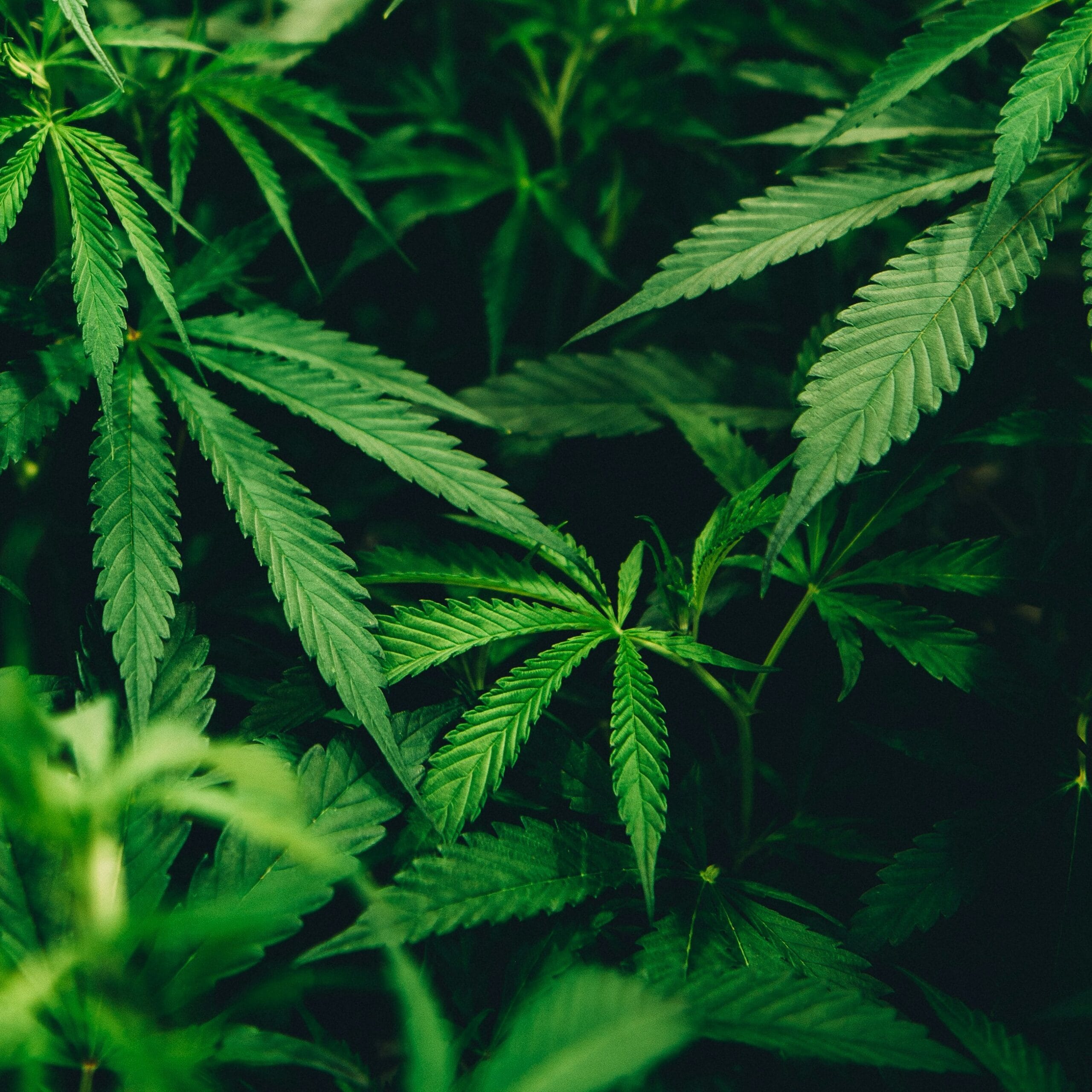Episode Transcript
[00:00:00] Speaker A: Welcome back to Critical Defiance, the show where questioning the status quo isn't just a hobby. It's basically our cardio.
[00:00:07] Speaker B: Today we're rolling up, purely metaphorically. Please don't snitch to talk about America's oldest frenemy, marijuana. Is this country finally coming to its senses or are we still running a national DARE program for adults?
[00:00:22] Speaker C: Depending on where you live, you might be legally lighting up or spraying your air freshener covers that herbal aroma before your in laws drop by. Seriously though, you should try explaining the legal patchwork to your grandma. If you really want to watch her face go on a full Cheech and Chong journey.
[00:00:42] Speaker A: We'll dig into why the war on weed ever started, how state laws turned into a cross country. Choose your own adventure, and whether banning pot makes any sense in a country where you can literally doordash stronger stuff.
[00:00:54] Speaker B: At 2am we'll also tackle whether marijuana prohibition is good policy or just an especially outdated showing of reefer madness on loop.
[00:01:03] Speaker C: And we are definitely asking, is it time for the feds to catch up with reality, or are we destined for a future where crossing state lines with a gummy is riskier than interstate tax evasion?
[00:01:16] Speaker A: Stick around. Whether you're a cannabis connoisseur or a curious skeptic, we're about to spark up some real talk.
So it's been a week and has been a week of stuff. We definitely have the weedisode going today. That is the vibe. I know. Bobby and I are both very baked. Yes, Bill, not so much. So someone I guess is the designated driver this week.
[00:01:47] Speaker B: Yes.
[00:01:50] Speaker A: But yeah, yeah, it's been a week in the news too. We've got flash floods bouncing around again. This time it's all on the east coast.
[00:01:56] Speaker B: Yeah, it was. And scary over here.
[00:01:58] Speaker A: Yeah.
[00:01:59] Speaker B: Some places.
[00:02:00] Speaker A: Yeah. Yeah. I saw water over the roofs of cars in. In. I think it was the cross island expressway in New York.
[00:02:06] Speaker C: Really?
[00:02:07] Speaker A: Yeah, yeah. It was. Not the flash flooding that we don't normally see in this region. I know down in Maryland it was really bad. And so far FEMA has responded to their request for aid with no explanation other a rejection.
[00:02:21] Speaker C: If Maryland is looking for an explanation, they might consider the fact that they're a blue state in our red administration.
[00:02:28] Speaker A: That's basically what it is.
[00:02:29] Speaker C: Let's be real.
[00:02:30] Speaker A: You know that. And there's a $200 million gold plated ballroom that we're going to put up at the White House that has to be paid for. So there's that too.
[00:02:37] Speaker B: Yeah. Huh. Huh.
[00:02:39] Speaker C: I'm sorry.
[00:02:40] Speaker B: I thought you were going to say that Maryland should start talking to Texas.
[00:02:43] Speaker C: But has anybody caught a photo of the Oval Office lately?
[00:02:48] Speaker B: No.
[00:02:49] Speaker A: God, it's all gold.
[00:02:50] Speaker C: It looks like, it looks like North Mar A Lago.
[00:02:53] Speaker A: It really is ridiculous what he's doing. And it's just his taste for gold as a, some kind of a status symbol is just idiotic at this point.
[00:03:03] Speaker B: Ever since I was a little kid, I was always like, no, silver is better. So, I mean, maybe he likes gold because the Cheeto dust doesn't show up as. Obviously, I do it tastefully.
[00:03:14] Speaker A: Tastefully. Yeah, exactly. Do something tasteful. Do something.
[00:03:18] Speaker C: Let's not do something douchebag. Let me, let me put it bluntly.
[00:03:21] Speaker A: Yeah. Do something befitting the White House.
[00:03:25] Speaker B: You're telling who to not be a douchebag.
[00:03:27] Speaker C: Okay, sorry.
[00:03:29] Speaker A: So the other one that hit us in the news this week, that I thought was weird, just weird, the jobs report came out and it was pretty bad. So Trump immediately claimed that it was rigged and then fired this commissioner for labor statistics because it was rigged. And even the Republicans are going, what? What? You. What? What are you doing? What is. What? What?
[00:03:49] Speaker B: You said something I don't like.
[00:03:51] Speaker C: What is wrong with him? May I open the bidding with.
[00:03:56] Speaker A: Let me count the ways. God, it's just, it's astounding. It's astounding what this administration has done and is doing.
[00:04:03] Speaker B: And it just makes me think next time we have to vote, is it going to come back and he doesn't like it and he's just going to fire everyone who, like, counts the votes before?
[00:04:11] Speaker C: Gee, that's never tried to happen before.
[00:04:14] Speaker A: Let's not give them ideas.
[00:04:16] Speaker C: So you gave me the numbers. You're fired.
[00:04:20] Speaker A: Like, what does that accomplish?
So this week's topic is modern marijuana prohibition, guys. And state based legalization in the US.
[00:04:39] Speaker B: Spark up for a lively ride through America's high stakes battle over marijuana laws. We'll hit the highlights. Why marijuana became the boogeyman, where it stands now, and whether the continued tug of war between prohibition and legalization is as logical as, say, using a lava lamp as a coffee mug.
[00:04:58] Speaker C: Picture this, it's the 1800s and cannabis is just vibing. No one's clutching their pearls about Mary Jane. In fact, it's American as apple pie used to treat headaches, make rope, and maybe, just maybe to pull some hijinks on grumpy old President Andrew Jackson. The US Government really too busy to care about the so called devil's lettuce.
[00:05:23] Speaker A: As a matter of fact, Some of our early presidents, some of our founders, including George Washington and Thomas Jefferson, grew hemp.
[00:05:32] Speaker C: Exactly.
[00:05:33] Speaker A: Was used in textiles back then. It was even possibly used in some of the first Drafts of the U.S. constitution.
[00:05:39] Speaker C: Hemp paper was a very common thing.
[00:05:43] Speaker B: Back in the day. It was back in the day when.
[00:05:46] Speaker C: It wasn't illegal to grow hemp.
[00:05:47] Speaker B: And it's a good renewable resource. There's a reason it's called weed.
[00:05:54] Speaker C: There were, I don't want to even say few. I want to say there were virtually no moral or legal judgments regarding cannabis. It grew in the ground, you harvested it, it gave you this, it gave you this, it gave you that. Therefore, what's the problem?
What's the problem?
[00:06:11] Speaker B: It's like tobacco. Somebody figured out you could dry it and smoke it, and they said, oh, this does shit too.
[00:06:17] Speaker C: Yeah, well, those were Native American. Those were Native Americans. And you know what we did to them, right?
[00:06:22] Speaker B: Yeah, but I mean, the white man was smoking weed at that point. I do think, like, we figured out we could smoke weed as a human, just as humans. I think pretty early on, outside of.
[00:06:35] Speaker A: The US Cannabis was totally accepted and used traditionally, medicinally throughout the world. It wasn't just the US it was pretty much everywhere. It was part of the landscape back then. It wasn't something special, it wasn't something big, it wasn't the devil's anything, it wasn't the angels anything. It was just there. It was just there. Now, as we tiptoe into the 1900s, things start to get messy. Cannabis doesn't suddenly become evil. Nope. It gets swept up in the rising tide of anti immigrant sentiment. The fun twist. Politicians found it way easier to demonize marijuana when they paired it with xenophobia. And I say marijuana because they did back then, and they spelled it with an H to make it sound more ethnic.
California fired the first shot with a ban in 1915. And by the state, bans were popping up quicker than conspiracy theories on Facebook, all fueled by anti immigration sentiment. Actually, its association with Mexican immigrants was particularly used to fuel fear back then.
[00:07:36] Speaker C: William Randolph Hearst, leading journalist of the time, was instrumental in the sensationalizing and the demonization of cannabis and its users. William Randolph Hearst was also millionaire, but today he would have been a billionaire. And he was also in the pockets of, just as we see today, politicians in power and was more than willing to do their bidding.
[00:08:02] Speaker B: That sounds what we have going on today.
[00:08:05] Speaker A: Washington Post much?
[00:08:07] Speaker C: Yeah, yeah.
[00:08:10] Speaker A: Not to call anybody out, but Washington Post much?
[00:08:12] Speaker B: Yeah. When history is repeating, when we're still.
[00:08:16] Speaker C: When the politicians and the billionaires and the journalists are united. Almost nothing is impossible.
You can convince the populace of virtually anything.
[00:08:29] Speaker A: Agreed. So, you know, a lot of the modern PR and the propaganda machine we have nowadays is a direct derivative of that stuff back then, I think.
[00:08:37] Speaker C: Yeah, absolutely.
[00:08:38] Speaker A: It's really one continuous stream from then to now with a lot of recycling of the messaging and the fear mongering and everything else that goes with it.
[00:08:46] Speaker B: Yep, history is repeating in too many ways.
Enter 1937. Harry Ainslinger. Think J. Edgar Hoover, but for weed convinces Congress that cannabis is public enemy number one. Sensationalist newspapers fanned the flames. The Marijuana Tax act didn't outright ban weed, but it taxed it so aggressively you'd have thought Uncle Sam was trying to fund the space program.
Result, Industrial hemp got the boot. Poor one out for the sturgeon rope and even doctors lost access. The first arrests were as much about bad paperwork as bad habits. This was the briefer madness era of propaganda. That movie was made in 1939 and is the most ridiculous thing.
[00:09:36] Speaker C: That movie put the Nazi propaganda machine to shame with its portrayal of marijuana and its effects.
If you haven't, if you haven't seen it, folks, you gotta get on YouTube or find it wherever you can.
[00:09:54] Speaker A: Public domain nowadays, so you can find it anywhere. But yeah, it is.
[00:09:58] Speaker B: It's a cult classic at this point. People like watch it to make fun of it. Now I watch it to celebrate 421 year and we still have misinformation about weed today, but I don't think, I don't think I've seen it shown that flamboyantly.
[00:10:13] Speaker A: Well, it shifted placement, really. A lot of the misinformation shifted to lobbying and the industrial side of things, where they kind of drove this rhetoric that weed was horrible because it was competing with their resource supply, with what they were selling, you know, wood pulp.
[00:10:28] Speaker B: Yeah, definitely is. Also, weed has always been the more globally conscious resource.
[00:10:35] Speaker C: And let's also pick, pick up here on the fact that the American Medical association opposed the Marijuana Tax act because it restricted doctors and scientists ability to research and prescribe cannabis.
[00:10:54] Speaker B: That act stifled cannabis medical research for decades and made it such a difficult process that we're still trying to fix today.
[00:11:04] Speaker C: All right, potheads, let's jump forward. A few decades and a lot of smoky jazz clubs later, suddenly it's 1970. Cue the Controlled Substances Act. Pot jumps to Schedule 1, a category reserved for drugs with, quote, no accepted medical use, close quotes and a higher risk factor than Congress's approval ratings. And it is still stuck there. Federally medical science completely ignored. But hey, at least heroin has some company at the top, no? And there were serious political motivations for this. We're looking at the Nixon administration.
We're looking at his battle with the counterculture, the hippies, the black community, and his desire to use the drug war to target those same communities and protesters and marginalized groups. In a 1994 interview, John Ehrlichman, who was Nixon's top domestic advisor, said this, quote, the Nixon campaign in 1968 and the Nixon White House after that had two enemies, the anti war left and black people. You understand what I'm saying?
We knew we couldn't make it illegal to be either against the war or black. But by getting the public to associate the hippies with marijuana and blacks with heroin and then criminalizing both heavily, we could disrupt those communities. We could arrest their leaders, raid their homes, break up their meetings and vilify them night after night on the evening news. Did we know we were lying about the drugs? Of course we did.
[00:12:57] Speaker B: If you ever wanted to know why the War on Drugs was started, there you go. The birth of the War on Drugs.
[00:13:06] Speaker A: And at around the same time, other countries started diverging from what we were doing. Other countries did not stick to the US model. They did not put cannabis in their strictest categories. So it created this disparity between us and the rest of the world, where we started to see these massive criminal justice issues where we started to see these massive criminal justice issues like mass incarceration.
And when you look at America, America has one of the largest incarcerated segments of its population. And when you look at that incarcerated segment, the percentage of it that is weed users, weed related crimes, marijuana related infractions, is just insane.
[00:13:45] Speaker B: Not to mention when you see the percentage of how many of those prisoners are also African American or black or just people of color.
[00:13:54] Speaker C: The gateway drug theory back then.
[00:13:57] Speaker B: Oh my God.
[00:13:58] Speaker C: Marijuana.
Marijuana will lead you to harder drugs. You start doing marijuana and tomorrow you'll be doing pills, and the week after that you'll be doing cocaine. And before you know it, you're shooting heroin in your veins.
[00:14:11] Speaker B: They were telling me that in third grade. Still, same here.
[00:14:15] Speaker C: Gateway has been debunked so many times in so many ways with so much scientific research.
So why the hell has it lasted so long in public policy? I'm sorry, don't wait for me to answer that because I don't fucking know.
[00:14:29] Speaker B: I'm just remembering.
[00:14:30] Speaker C: Other than other than political convenience. Political convenience. And we have a prison system now that's profit based, profit motivated.
And who wants to suck the life out of that?
[00:14:42] Speaker A: Yeah.
[00:14:42] Speaker C: Not the white. Not the white billionaires.
[00:14:45] Speaker B: Yeah. I'm just trying to remember what the four gateway drugs they taught us were again. Because I know it was weed, alcohol. I can't remember the other two they considered. I think nicotine was considered a gateway drug.
[00:14:59] Speaker A: Nicotine was considered a gateway drug.
[00:15:02] Speaker C: At least they were unsafe enough. At least they were.
[00:15:05] Speaker B: I just don't remember what the fourth was.
[00:15:07] Speaker A: Yeah, in my generation it was just weed. Weed was the gateway drug.
[00:15:10] Speaker B: We had a few, but weed was always on there.
[00:15:13] Speaker A: Weed was the gateway drug for us. Smoking was basically still okay. Weed was the gateway drug. Drinking was only a problem if you were an alcoholic.
[00:15:20] Speaker C: Yeah, yeah.
[00:15:21] Speaker A: And we did all of it on TV regularly.
[00:15:23] Speaker B: All right. Yeah. So they added some. By my generation, even the long arm.
[00:15:27] Speaker A: Of federal law couldn't stop the states from getting creative. The 1970s saw states quietly decriminalizing small amounts of giving birth to legends of tie dyed Woodstock hippies and nervous parents nationwide. The real game changer came in 2012 when Colorado and Washington said hold my beer and became the first states to fully legalize recreational cannabis. Suddenly we'd had lawyers, ad agencies, and more regulations than a daycare center. Now the thing about it was we wound up with this state by state experiment where states basically started serving as laboratories for democracy, trying out different approaches, some medical, some recreational, some decriminalization based.
And it became confusing as hell. Not just for pot smokers, but it became confusing for travelers, for employers, even for law enforcement.
[00:16:19] Speaker B: Yeah. Penalties in some states are different than penalties in others. The taxing's different. The like it was.
[00:16:26] Speaker A: You can be in a state where it's perfectly legal next to one where it's absolutely not.
[00:16:31] Speaker B: Yeah.
[00:16:32] Speaker A: And start getting pulled over simply for having one state's plate.
[00:16:35] Speaker C: Yeah.
[00:16:36] Speaker A: Which happened a lot when Colorado legalized.
[00:16:38] Speaker C: Don't start driving across state lines in that scenario because it gets real, real quick.
[00:16:46] Speaker A: And yet post legalization data showed a big reduction in black market violence and in some cases changes in policing priorities that were actually pretty positive.
[00:16:56] Speaker B: Yeah.
[00:16:57] Speaker A: Less than the kicker was the revenue. Right, Bobby?
[00:17:00] Speaker B: The unexpected revenue from tax breaks on weed that ended up funding everything from education to homeless prevention. Even after the struggles of learning how to tax something like weed.
[00:17:12] Speaker C: Don't worry about struggles.
Don't worry. Don't worry about struggles. The government will always find a way to tax anything they can possibly tax if they have to. If they have to. Think about it for a Year my heart bleeds. But they'll figure it out. Believe me, they will always figure it out.
[00:17:32] Speaker A: Yeah. Yep. But then, you know, you get all this legal limbo too. You have all these legal gray areas, like banking in some states, the way dispensaries are operated, dispensaries on things like native land. There's all sorts of legal gray areas that you can't really quantify or fully pin down because of the disparity between state and federal laws.
[00:17:52] Speaker B: Oh, there's the difference in taxing and also the difficulty still, like legally with finding things like, you know, we have a legal limit of alcohol for driving, but we still don't know how to properly measure marijuana. Yeah. Because it's so different person to person. And the research has been stunted for so long.
And finally, welcome to 2025. 24 states plus DC have legalized recreational cannabis, meaning you can now buy weed almost as easily as overpriced lattes. And even bigger leap, 40 states have rolled out medicinal cannabis, proving that sometimes progress gets baked in one state at a time or just baked one co host at a time.
The US is still lacking when it comes to full national legalization, especially compared to Canada, Uruguay, Thailand, other countries that have.
[00:18:52] Speaker A: You wouldn't normally put next to us.
[00:18:54] Speaker C: Yeah, exactly. Yeah.
[00:18:56] Speaker B: Because here we still don't have federal legalization. It's still a state's game, which is just ridiculous.
[00:19:04] Speaker C: Imagine Thailand, a Southeast Asian nation known for some of the strictest drug regulation on the face of the globe. And your safety with an ounce of wheat in Thailand than you are in half of the United States. This makes sense to me.
That's part of the problem. We have so many overlapping, sorry, overlapping and conflicting federal, state and local regulations that there's no possibility of making sense of it in the bigger picture.
[00:19:39] Speaker B: And there's. It makes it almost impossible to get real research out. Like in states where it's fully legal, we can have. Have maybe individuals, but nothing on a government level can we get really any medicinal research, Anything you can publish? Yeah, yeah. We won't be able to do that until it's federally legalized. And that's when most of the country wants something which doesn't happen a lot here in the US like just do it at this point.
[00:20:06] Speaker C: Let me just backpedal a second there, Niels. On the question of how can we get anything published under our current Health and Human Services Secretary, I would suggest that potentially anything you or I or Bobby writes could get published.
[00:20:21] Speaker A: That's true. That is absolutely true. I'm going to do a paper on the necessity of marijuana. So for the survival of those with weed, a beetus weed beaters. That is going to be the new disability du jour in this country. Wee to beat us.
[00:20:34] Speaker B: I got weed beaters.
[00:20:36] Speaker A: Treat mine right now.
Dream mine right now. Well, you know, we talk about, you know, you talk about the administration, Bill. And like with the volatility we have with this administration, it was Trump in particular. And even with whatever comes, comes afterward, if something different does indeed come afterward, rescheduling it, descheduling it, or recriminalizing it are all on the table. It could go any which way.
[00:20:58] Speaker B: Yeah.
[00:20:58] Speaker A: You could imagine. Yeah, we like not a stable situation. Right, Bobby?
[00:21:03] Speaker B: It's definitely not stable. And Trump, this administration is just scary. And I feel like even if some states still want to move one way with weed, it's just going to be whatever the Cheeto man wants that day.
[00:21:18] Speaker A: And when you look at the states, the divide between them is growing because of it. Because the urban states where it's being decriminalized or legalized are seeing an increase in their overall tax wealth.
[00:21:30] Speaker B: Yeah.
[00:21:30] Speaker A: The rural states that aren't doing it for whatever reason, be it moral, social, political, police, whatever, aren't. So the wealth gap between the states is rising, and it's their own damn fault.
[00:21:43] Speaker C: And they were already suffering financially, economically.
[00:21:46] Speaker A: But they see the industry as crime and punishment, not as legalization and taxation.
[00:21:51] Speaker B: Yeah. And then there's also the issue of our formerly incarcerated people getting a fair shot as the industry becomes legit in some states or they're being left behind.
[00:22:03] Speaker A: Their records expunged, do they get their sentences commuted? How does it work?
[00:22:07] Speaker B: Yeah.
[00:22:07] Speaker A: At least. And each state has tried a different approach to this.
[00:22:10] Speaker B: Yeah. If you were arrested for holding, for having a gr, I don't know, an ounce of weed on you, but now it's legal to have up to 3 ounces of weed on you in your state. They letting you out like you getting anything back.
[00:22:22] Speaker C: Can I go home now?
[00:22:24] Speaker B: Reparations.
But still, we could be in a much better spot. And here's the practical rub. Your ability to buy, smoke or grow marijuana in America depends more on your state line than your zodiac sign. So ultimately, state experiment is a polite way to say what's legal in Vermont could put you in jail in Alabama.
[00:22:46] Speaker A: That's absolutely true. And to give you an idea or a little bit of a breakdown, what we've got right now is we've got 24 states, plus D.C. are recreationally legal. We've got 24 states where.
[00:22:57] Speaker C: 24 counting. 24 counting.
[00:22:59] Speaker A: Yeah, exactly. We've got 40 states where we've got medical use that's legal. And then we've got 10 states that have a total prohibition. They have public support that's climbing for reform, but they have a total prohibition. On the federal level, it's still illegal. Those 70s books on the law, on the federal. Those are not out of date. It is still illegal. They haven't caught up to reality.
Ew.
[00:23:24] Speaker C: Okay.
Yeah. On the federal law books, marijuana is still classified as a Schedule 1 drug. If you're caught in one of those 10 states that offer a total prohibition on marijuana, you might as well be crossing state lines with heroin.
[00:23:44] Speaker A: You've screwed six ways from Sunday because.
[00:23:47] Speaker C: Your penalties are not distinguished. It's marijuana, it's cocaine, it's heroin, you're fucked. End of discussion.
[00:23:54] Speaker A: It's not like the others.
[00:23:57] Speaker C: Discussion, no debate. You're done. You're just done. So ultimately, the quote, state experiment unquote is a polite way of saying what's legal in Vermont could put you in jail for a long time in Alabama. So let's think about whether keeping marijuana illegal at the federal level or in the holdout states makes sense in 2025. There are still some arguments for prohibition, though. They're getting a little musty and dusty at this point in time. Remember the gateway drug.
Here's a spoiler for you.
The vast majority of research does not support this nonsense, okay? Nonsense. And if anything, alcohol is often the true gateway.
The reality is a 12 or 13 year old isn't thinking, how can I get some potential? You're thinking, how can I get my hands on a, I don't know, a six pack of beer, airline shot?
[00:24:57] Speaker B: People don't know what the kids drink no more.
[00:25:00] Speaker C: And then there's the classic bucks. Then there's the classic, we gotta protect the kids. First of all, if you want to protect the kids, let's talk about guns and shootings and schools.
We know all you have. We know all, for that is thoughts and prayers.
[00:25:19] Speaker B: Well, if you also want to talk about protecting the kids when it comes to drugs, why don't we look at how many kids still have nicotine addictions? We were supposed to be getting rid of smoking in, in my lifetime, but then we turned it to vapes that taste like candy or come in from little things that you could play a video game on. And are we protecting the kids from the addiction of the nicotine?
[00:25:41] Speaker C: And then there's the reality that youth use in states post legalization have absolutely not skyrocketed. And the other dark factor, Illicit market dealers. The guy around the corner of the building selling pot, he's not going to card you. He's not looking for id. He's looking for cash.
He don't. He don't care if you're. He don't care if you're 12 or 22 or 35. Show him the cash, he'll show you the ounce.
[00:26:11] Speaker A: But Bill, it's about public health.
[00:26:14] Speaker C: Nonsense. Stop it. Tobacco and alcohol are both legal, and with the brief exception of prohibition, have been for centuries. And both are demonstrably way more dangerous to individuals and to society. So fuck your public health.
[00:26:32] Speaker A: I want to go the other way. Oh, I'm going to look at it just in. In democracy terms. Two thirds of Americans support legalization. Two thirds of us. Even most Republicans under 40 have no problem with this. So if we're representing the people, why is this still legal? Why do we even have prohibition?
A lot of the argument for it is just not going to hold water. In 2019, cops arrested more Americans for pot than for all violent crimes combined. $6.8 billion in potential tax revenue could have flown to education, health care, or even law enforcement. If you want to be meta about the whole thing. But instead we're persecuting people.
[00:27:15] Speaker C: I want to be meta and I want to be meta. And I've done this before, but I'm going to do it again. Back in the days of Nixon and Watergate, what was the mantra? Follow the money.
[00:27:26] Speaker B: Yeah, Corporate prisons. We can just now arrest people for something that grows in the ground.
[00:27:33] Speaker C: You're damn right.
[00:27:34] Speaker A: You know, and this prohibition disproportionately targets communities of color, as always. Yep. The marginalized, the disenfranchised, and minorities. While the legal market could actually reduce the power and violence of drug cartels and drug dealers. So again, where is the logic? Because none of this stuff feels like it's legitimate to me or you or most of the public. And laws that lack public support undermine trust in law enforcement. People are much less likely to comply with what they see as an arbitrary or outdated rule.
[00:28:07] Speaker B: Yeah, even people who haven't done a bunch of research into weed or maybe don't even smoke it at this point are just like, yeah, whatever. The US is currently running a two tier system. Pot friendly states are building entire economies and school budgets on legal cannabis, while prohibition states are still jailing people.
People of color, disproportionately for a plant that grows out of the ground. We're still doing this. I can't believe we're still doing this. And legalization hasn't led to an apocalypse. States like Colorado have seen billions in tax revenue and no epidemic of couch locked zombies raiding Taco Bells. Though I may be guilty of that.
[00:28:48] Speaker A: Me too, from time to time.
[00:28:50] Speaker B: Mayhaps it happens, but in general, in its entirety, the patchwork system is breaking down. With more states eyeing legalization in 2025, including Pennsylvania, New Hampshire, Hawaii, and Virginia, the pressure is building for the feds to drop the act and fix the fucking scheduling. I'm so sick of a plant being in Schedule 1 that the devils let us know they knew they were lying. They said it. It's out there. It's been out there since 1994. More people need to hear this. Send this episode to everybody who know who is against Podcast A lot of.
[00:29:26] Speaker C: Lies have been out there for a long time and still nobody wants to back down. I don't want to mention the current administration directly, but yeah, it. It's out there.
[00:29:37] Speaker A: Yeah, modern marijuana prohibition in the US is like insisting Blockbuster is going to make a comeback. Nostalgic, impractical, and less reasonable the longer the idea clings to life. Legalization, on the other hand, is proving to be both popular and effective at raising revenue, reducing crime, and treating adults like adults.
So for us, I think it's a clear choice. Right guys?
[00:30:01] Speaker B: You lies.
[00:30:02] Speaker C: Well, you guys are radical, so I'm not so sure. But yeah, I guess.
[00:30:05] Speaker B: Yeah.
[00:30:16] Speaker C: Here'S where we are today. This insane patchwork of state marijuana laws in the US has created a confusing and really usually unfair system where legality depends more on your state lines than on any sort of consistent logic or policy. Legalization has brought billions of dollars in tax revenue for some states, and it's certainly reduced criminal justice disparities. And it's shown that many of the old arguments for prohibition, as if we didn't already know, just don't stand up to modern scrutiny.
[00:30:56] Speaker A: With growing public support and increasing numbers of states pursuing legalization, federal cannabis policy is becoming harder to justify, and long standing federal state conflicts are reaching a tipping point.
[00:31:10] Speaker B: So what can we all do? We can all contact our local, state and federal representatives to express our support for legalization. Personal stories about how current laws impact you or your your community can have a powerful effect. And you could probably use five calls for that too. Bother them. Tell them, hey, while you're arguing about nothing and not fixing what the administration is doing, just sign something that makes weed legal. Thanks.
[00:31:38] Speaker A: You can also educate others, you can share actual, factual information about the benefits of legalization and dispelling common myths. Whether through conversations or social media or participating in forums or whatever, you can get the word out there that things like the gateway drug story and the link between weed and heroin are just all bullshit.
[00:31:58] Speaker B: Support advocacy groups and initiatives working toward equitable legalization, including organizations focused on expunging past convictions and ensuring communities most affected by prohibition have a voice in the legal cannabis industry.
[00:32:13] Speaker A: So for next week's episode, we don't quite have a plan, but we were good with that this week. We kind of rolled with it and pulled it off. We've got a list of ideas and they're really great ideas and there's at this point probably 50 or 60 of them, and we don't know which to choose. So over the next couple of days, we're going to reach out to the audience on social media and our website and try and get a feel from you guys as to what the next episode should be. So stay tuned and we'll get some options out there. I guess it's time for the credits, huh, guys?
[00:32:42] Speaker B: Yeah, I guess so.
[00:32:43] Speaker C: Time again, Bobby.
[00:32:45] Speaker A: Hit it.
[00:32:45] Speaker B: Your hosts and producers are Nils, Bill, and me, Bobby Socks. Behind the scenes, the audio magic is woven by Nils and Jack, with crucial feedback and assistance from our associate producers Tyler and Turbo.
[00:32:59] Speaker A: Our writers room is composed of everyone we just mentioned, with help from our friends Skeeter and Jimmy and occasionally one of the Daves. We couldn't do any of this without our incredible contributing members, who not only support us, but help steer the ship on episode topics and formatting.
[00:33:13] Speaker B: Finally, we'd also like to thank HBO for all those late night Cheech and Chong movies when we were children.
[00:33:18] Speaker A: For more or to get involved, find us@critical defiance.com.






